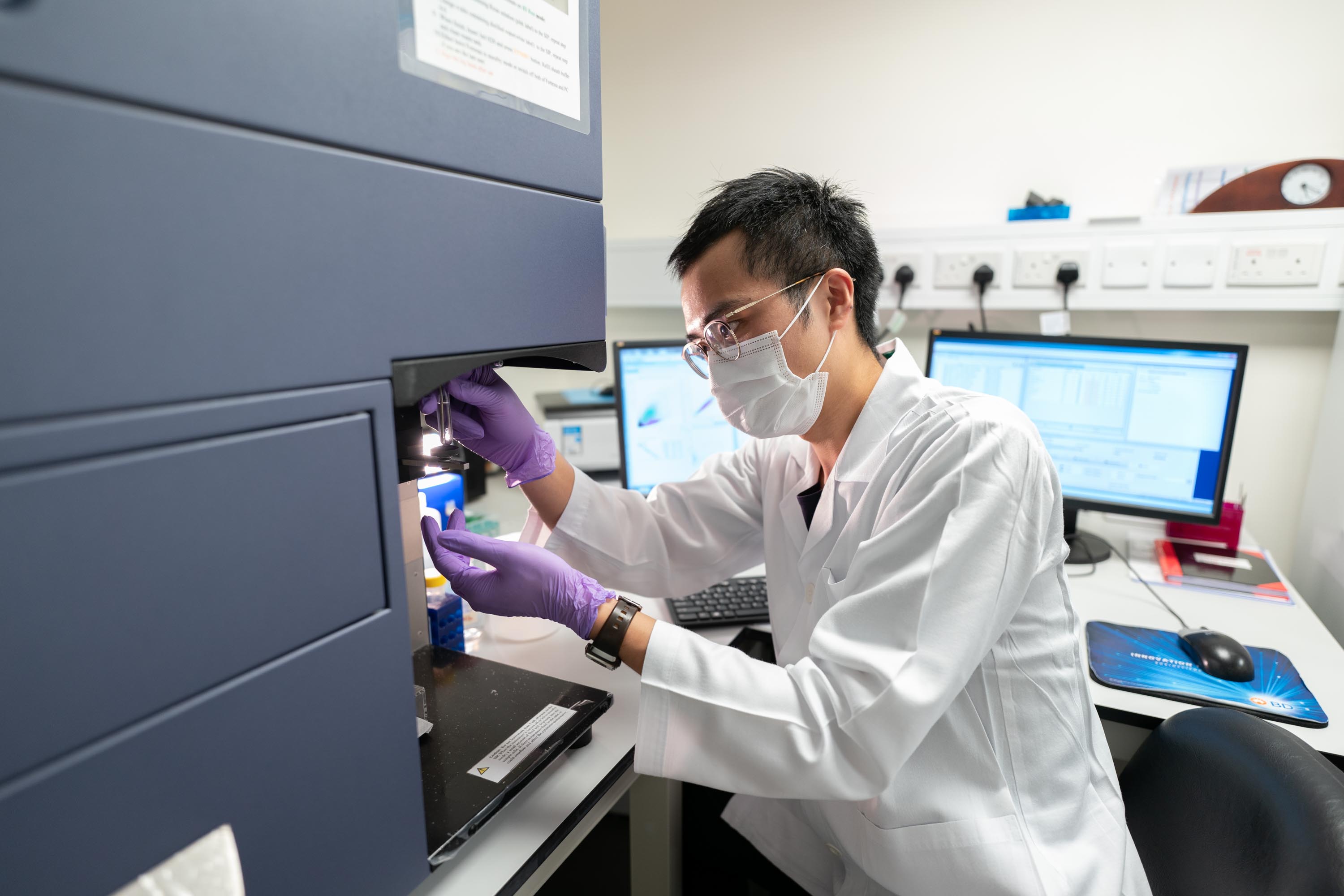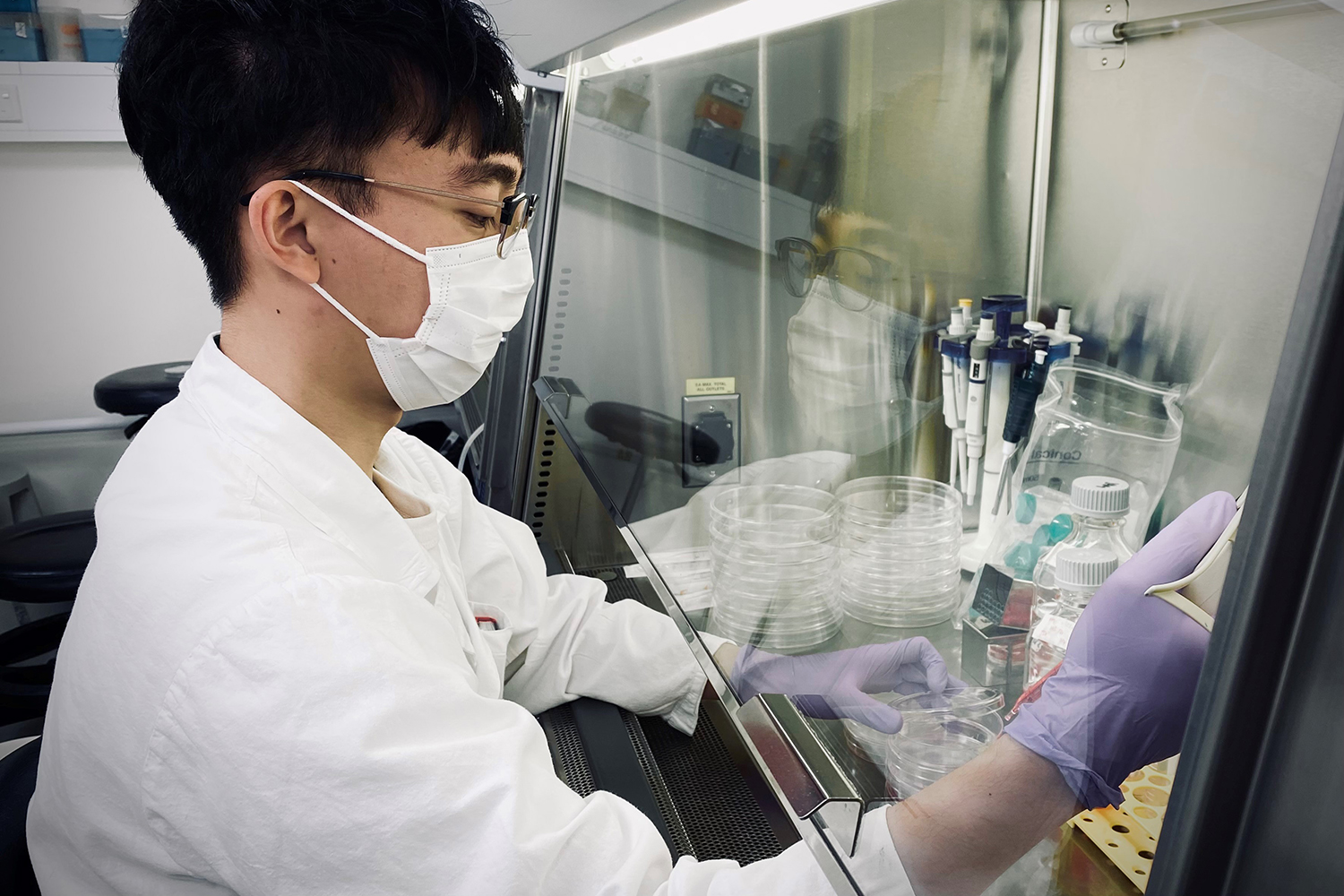Research Area 1: Gynaecological malignancies
Molecular genetics in diseases of the female genital tract including cancers of the ovary, endometrium and cervix as well as gestational trophoblastic disease. Current projects include NUAK2 signalling pathway studies on ovarian carcinogenesis, metastasis and chemosensitivity as well as ferroptosis as potential target in ovarian cancer therapy.
| Supervisor(s) |
|---|
Research Area 2: Gynaecological Pathology
Our research focuses on the molecular mechanisms of the development and progression of rare female reproductive tract malignancies. Our projects focus on molecular biomarkers for diagnosis and therapy. We have close collaborations with local gynaecological oncologists and international gynaecological pathologists.
| Supervisor(s) |
|---|
Research Area 3: Molecular Oncology, Pathology and Genetics of Breast Cancer
Our research interest focuses on investigating the underlying molecular mechanisms contributing towards drug resistance in the treatment of breast cancer. This includes cancer genetics, identification and molecular characterization of biomarkers that predict drug response and the development of novel targeted therapies.
| Supervisor(s) |
|---|
Research Area 4: Genomics, Genetics and Precision Cancer Medicine in Colon and Stomach Cancers
Generation of 3D organoid culture model of stomach and colon cancer; large scale multi-omics profiling and drug testing to identify biomarkers that predict drug response; identification and characterisation of novel cancer driver genes and pathways; CRISPR-Cas9 genome editing for functional genomic study; discovery of new drug targets, new biomarkers, and new pathways of cancer development with therapeutic implications.
| Supervisor(s) |
|---|
Research Area 5: Characterisation of Molecular Mechanisms and Signalling Pathways in Cancers
| Supervisor(s) |
|---|
Research Area 6: Molecular Genetic and Functional Analyses of Novel Genes and Important Cellular Pathways in Liver Cancer
Basic/translational research of liver cancer (hepatocellular carcinoma, HCC), using state-of-the art molecular approaches including genomics, transcriptomics, and single cell analysis, to address liver cancer pathogenesis and cancer heterogeneity. Importantly, integrated functional genomics of HCC is employed using genome-scale technologies, functional molecular analysis and in vivo animal models coupled with clinical translational studies are used to address the molecular mechanisms of this cancer for early detection, diagnosis, prognosis and patient stratification towards precision oncology.
| Supervisor(s) |
|---|
Research Area 7: Malignant Lymphoma
Molecular pathogenic mechanisms of malignant lymphoma.
| Supervisor(s) |
|---|
Research Area 8: Genetics and Epigenetics of Liver Cancer
Liver cancer is one of the most common malignancies worldwide and is particularly prevalent in Asia and Hong Kong. Our research focuses on studying the molecular mechanisms of liver carcinogenesis, with major research areas including genetic alterations (mutation, chromosomal gain/deletion), epigenetic abnormalities (DNA methylation, histone modifications, and chromatin remodelling) and non-coding RNA deregulation (microRNA and IncRNA) in liver cancer. We also employ next-generation sequencing and CRISPR genome editing technologies for deciphering the functional cancer genome and epigenome.
| Supervisor(s) |
|---|
Research Area 9: Tumour Microenvironment of Liver Cancer
Hepatocellular carcinoma (HCC) is an aggressive tumour with metastasis as a signature in the advanced stage. A supportive microenvironment in the distant organs for the colonization of incoming disseminated cancer cells during metastasis is indispensable. Intercommunication between cancer cells and microenvironment plays a crucial role during cancer development and metastasis. Extracellular vesicle (EV) shedding from cells has emerged as an important channel for cell-cell communication. EV plays an important role in influencing the local tumour microenvironment and forming pre-metastatic niche in distant organ sites. EV content is regarded as a fingerprint of the releasing cells; it provides insightful information about the origin and functions of releasing cells. Circulating EV of cancer patients may therefore serve as promising biomarker for early detection and prognosis. Using multidisciplinary approaches, we are interested to understand the molecular basis of EV-driven HCC metastasis by dissecting the functional role, signalling cascades and clinical applications of EVs.
| Supervisor(s) |
|---|
Research Area 10: Molecular Pathogenesis of Gastrointestinal Tract Cancer
We use cancer patient-derived 3D organoid cultures as a model to study cancer pathogenesis. In particular, we are interested in understanding the intra-tumoural heterogeneity via single-cell technology and the pathogenic roles of newly identified tumour drivers through CRISPR/Cas9 genome-editing.
| Supervisor(s) |
|---|
Research Area 11: Immunology
Lymphocyte development and its dysregulation in autoimmune disease − We are interested in studying lymphocyte development and its dysregulation during the pathogenesis of autoimmune disease. Using animal models for human rheumatoid arthritis and diabetes, we are developing novel strategies for the treatment of autoimmune disorders.
| Supervisor(s) |
|---|
Research Area 12: Molecular Biology of Liver Cancer, Hepatocellular Carcinoma (HCC)
Tumour microenvironment in HCC: Solid tumours are made up of malignant and other non-malignant cell types (immune cells and other stromal cells). Solid tumours are also embedded in a remodelled extracellular matrix (ECM). We are studying the molecular mechanisms by which these cellular and non-cellular components of the microenvironment promote cancer growth and immune evasion. We are particularly interested in the mechanisms which facilitate the formation of immune suppressive microenvironment in HCC.
| Supervisor(s) |
|---|
Research Area 13: Metabolic Reprogramming in HCC
How the metabolic machineries are reprogrammed during the formation of HCC is largely unknown. Our group investigates the signalling pathways that rewire the metabolic programmes in HCC.
| Supervisor(s) |
|---|
Research Area 14: Translational Studies in HCC
We are interested in the identification of novel therapeutic targets in HCC and in understanding the molecular basis of cancer cells that influences the response of immune therapies.
| Supervisor(s) |
|---|
Research Area 15: Therapeutic Targets and Molecular Mechanisms of Acute Leukaemia
Acute leukaemia is a highly aggressive disease with a rapidly fatal outcome if left untreated. Despite the recent advance in chemotherapeutic regimen and haemopoietic stem cell transplant, a substantial number of patients still die from the disease including young patients. Our research mainly aims to identify drug targets, develop novel therapeutic strategies for acute leukaemia and characterize the underlying molecular mechanisms. Our work, together with collaborating clinical departments, paves the way to future clinical trials so as to improve the treatment outcome of this highly fatal human disease.
| Supervisor(s) |
|---|
Research Area 16: Single-Cell Transcriptomics in Liver Cancer
Traditional molecular profiling strategies have inherent limitations. The emergence of single-cell genomics represents an unprecedented, powerful strategy in delineating the molecular landscapes of tumour cells and their tumour microenvironment at high resolution. It is particularly useful in studying liver cancer, which is known to be highly heterogenous and has a highly admixed cell population.
| Supervisor(s) |
|---|
Research Area 17: Liquid Biopsy in Liver Cancer
Liver cancer is often detected at advanced stage and inoperable, and systemic drug treatments are the major treatment option. Liquid biopsy has attractive advantages as compared to the traditional tissue biopsy in early detection and clinical management of liver cancer.
| Supervisor(s) |
|---|
Research Area 18: Bioinformatics in Liver Cancer
The application of single-cell sequencing (scRNA-seq) to delineate tissue heterogeneity and complexity has become increasingly popular. Although some software packages are available for its data analysis and visualization, it is still a big challenge for their usage. There is an urgent need for comprehensive software packages with graphical user interface to facilitate scRNA-seq studies.
| Supervisor(s) |
|---|
Research Area 19: Integrated Chemical Biology Approach for Studying Redox Stress and Its Associated Diseases
Redox stress has been known to associate closely with disease development and propagation, such as cancer, aging and neurodegenerative disorders. Yet, the underlying molecular mechanism remains largely unknown, because of difficulties in studying unstable and transient redox modifications.
Our lab develops novel chemical probes and chemoproteomic technology to identify protein target(s) associated with redox stress. Through trapping “reversible redox modification” into “permanent covalent tag”, we can identify these proteins by mass spectrometry (MS). We can also real-time visualize redox-associated signalling events by fluorescence imaging. With that, we can better understand how redox stress contributes to diseases, and discover new protein target(s) for treating redox-associated diseases.
| Supervisor(s) |
|---|
Find Out More
Information on selected projects or research areas: Interested candidates are advised to email the relevant supervisors. Please enclose with your email: (i) your CV, (ii) a brief description of your research interest and experience, and (iii) two reference letters (reference letters not required for HKUMed UG students seeking MRes[Med] or URIS projects)
Research studies enquiries specific to the Department/School’s research should be directed to the Departmental Research Postgraduate Advisor: Dr JWP Yam ( judyyam@pathology.hku.hk)
Information on the research programme, funding support and admission requirements could be found on the RPg Admissions website.
General admission enquiries should be directed to rpgmed@hku.hk.
Meet Our Students

Vincent YUEN
Place of Origin: Hong Kong
Progress: PhD Year 2
Supervisor: Dr CCL Wong
港大醫學院病理學系二年級博士生Vincent,在正式成為研究生前,曾在病理學系實驗室任職研究助理達兩年。「無論是指導老師黃澤蕾博士,還是當時我協助的博士研究生,他們都當我是研究團隊的一份子,毫不吝惜地教導我。我們還會一起專注討論,構思很多有趣的癌症免疫學研究題材。老師更鼓勵我到美國出席國際學術會議,擴闊對癌症研究的眼界。」
這段工作經驗,成了他決定進修博士學位的啟蒙。Vincent現時在同一個實驗室,參與肝癌的免疫療法研究。他形容這範疇是癌症病人的新希望,然而現時依然有很多病人對其出現抗藥性反應,因此他們的團隊希望可以找出這些複雜的抗藥機制,造福更多病人。
對於有意報讀研究生課程的學生,Vincent建議:「先捫心自問,自己有否探究精神?亦可以先在實驗室實習,體驗一下科研是怎麼一回事,再審視自己對科學有否足夠的熱誠。」
November 2020


Follow HKUMed